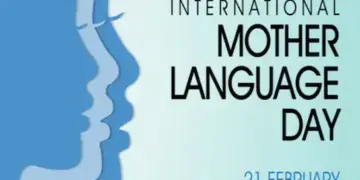By: Arshid Qalmi
Societies are built upon traditions, ideologies, and institutions that shape behaviours and norms. While many contribute positively to human development, others reinforce discrimination, inequality, and oppression. Deconstructing negative societal constructions, critically analysing and dismantling harmful cultural, political, and social narratives is a crucial step toward creating a just and inclusive world. The possibility of such deconstruction lies in the very nature of these constructions; they are not absolute truths but human-made ideas shaped by historical, economic, and cultural forces. Because they were created, they can be unmade.
Societal norms are fluid, evolving with time and circumstances. Practices once widely accepted such as slavery, child marriage, and gender exclusion from education have been challenged and overturned. This proves that deeply ingrained ideas can be dismantled through awareness and resistance.
Education plays a central role in this process. By fostering critical thinking, it enables individuals to question biases and dismantle unjust structures. Exposure to diverse perspectives through literature, philosophy, psychology, and history empowers people to challenge stereotypes and oppressive ideologies.
The power of media and technology has accelerated the deconstruction of harmful societal norms. With the rise of digital activism and global connectivity, marginalized voices now have platforms to challenge long-standing prejudices. Movements like #MeToo, Lives Matter, and different identity rights advocacy have forced mainstream society to confront uncomfortable truths, proving that oppressive narratives can be dismantled through collective effort.
Legal and policy reforms further solidify this progress. Governments worldwide have introduced laws against caste discrimination, gender inequality, and sexual identities. These institutional reforms demonstrate that oppressive societal norms are not permanent; they are subject to change when challenged by progressive forces.
Social movements and activism have historically played a pivotal role in breaking societal chains. Whether it was Mahatma Gandhi’s fight against colonial rule or Malala Yousafzai’s advocacy for girls’ education, individuals and communities have repeatedly resisted oppressive structures and rewritten the course of history. Psychological research supports this potential for change, as human beings are adaptable and capable of unlearning prejudices.
Cognitive dissonance, a psychological phenomenon where people experience discomfort due to conflicting beliefs, often pushes individuals to reassess their long-held views when confronted with new realities. Exposure to different lived experiences fosters empathy, making change not only possible but inevitable.
The deconstruction of negative societal constructions is essential for justice and equality. By breaking down oppressive norms, societies create equal opportunities for all individuals, regardless of gender, race, class, or background. This ensures that meritocracy, rather than inherited privilege, defines success.
Innovation and progress thrive in societies that question rigid traditions. Those that embrace gender equality, human rights, and inclusivity experience higher economic growth and social stability. Mental health and well-being also benefit from this shift. Harmful societal expectations, such as toxic masculinity, body shaming, and mental health stigma, often lead to emotional distress. Deconstructing these beliefs allows individuals to live more fulfilling and authentic lives, free from unnecessary judgment and pressure.
A more inclusive and tolerant society emerges when harmful norms are dismantled. Diversity in thought, culture, and identity fosters social harmony, reducing crime, violence, and discrimination. The greatest beneficiaries of this transformation are future generations. By challenging oppressive traditions today, we ensure that our children inherit a world where human dignity is prioritized over outdated ideologies.
Examples of successful deconstruction exist in history. The abolition of slavery, women’s rights movements, and mental health awareness campaigns have all proven that societies can evolve toward justice. However, resistance to change remains a significant challenge. Deep-rooted traditions, political manipulation, and economic interests often hinder progress. Misinformation and propaganda further entrench harmful ideologies, making the fight for equality an ongoing battle.
Despite these obstacles, history has shown that positive change is unstoppable when driven by education, activism, and policy reform. The deconstruction of negative societal constructions is not an act of destruction but of reconstruction, tearing down walls of oppression to build bridges toward justice and progress. It is a journey toward a world where freedom, dignity, and equality are not privileges but birth rights. Change may be slow, and resistance may be fierce, but with persistence, knowledge, and collective action, society can and will evolve. Breaking free from inherited prejudices is not just possible, it is necessary for a future where humanity thrives.




